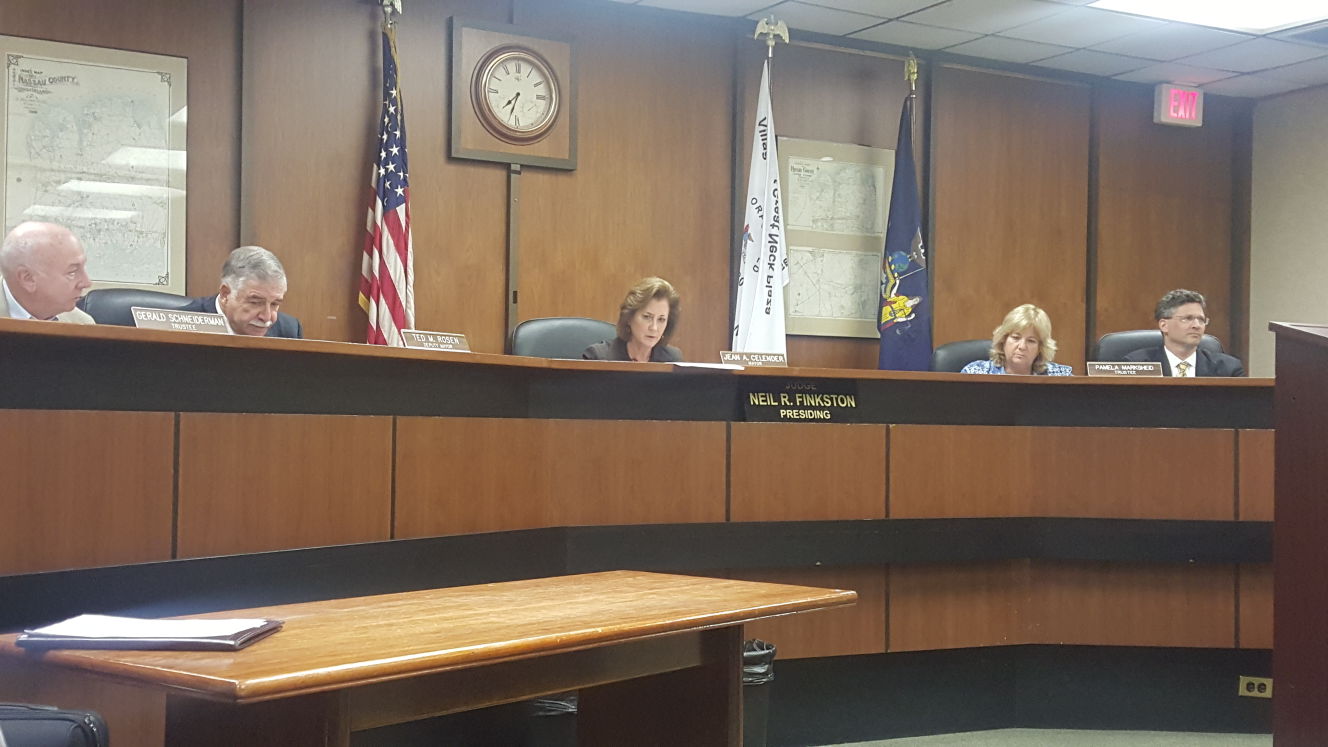After a second public hearing, Village of Great Neck Plaza trustees agreed on amendments to the village’s affordable housing laws which are being sent to the Nassau County Planning Commission for review.
The Board of Trustees began talks to amend village affordable housing laws on Dec. 2, after settling a federal lawsuit in October that alleged the village had violated fair housing laws by denying minorities equal opportunity to affordable housing units at The Maestro, a 94-unit rental apartment complex.
“The Village of Great Neck Plaza is committed to making affordable workforce housing units available in the village,” Village of Great Neck Plaza Mayor Jean Celender said. “The legislation is being amended to set aside the age and local preference provisions that were at the crux of the lawsuit claims. Remaining an open inclusive community that offers a wide range of rental and co-op apartments, condominium units and private homes has always been a goal of village officials.”
Village Attorney Richard Gabriele said attorneys representing The Maestro, which is located at 255 Great Neck Road, agreed with the proposed amendments but offered suggestions to change how rent would be determined.
Celender said she did not want to change the village code’s current method for determining rent, which takes 30 percent of “the combined current annual gross income of all persons living in the eligible person’s household.”
The law deems an applicant eligible if they make no more than 100 percent of the median income in Nassau County as defined by the U.S. Department of Housing and Urban Development.
“It benefits the people better because it’s a fixed amount on their income rather than some people getting higher and some lower,” Celender said. “Everybody’s treated fairly.”
In May 2014, Long Island Housing Services and the Fair Housing Justice Center filed a complaint in Central Islip’s Eastern District Court of New York claiming the village was violating local, state, and federal laws by enforcing discriminatory age and race requirements for affordable housing.
The plaintiffs claimed current village code favored “long-term residents of the predominantly white surrounding municipalities” and was “discriminating systematically against African-Americans” and “perpetuating residential racial segregation,” court documents said.
In 2005, the village enacted an affordable housing ordinance requiring newly constructed or converted residential buildings with at least 20,000 square feet of gross floor area to utilize 7.5 percent of that area for affordable housing units.
Persons eligible for affordable housing units, at the time, were required to be either under the age of 30 or over the age of 65 and had lived in the village for at least 10 years, court documents said.
The current village code, which was amended in 2013 after Village of Great Neck Plaza Mayor Jean Celender said it was difficult to attract applicants who met the village’s eligibility requirement, requires applicants to be either under the age of 40 or over the age of 65 and have lived in the village for at least 10 years.
Gabriele said the county Planning Commission needed one month to review the law, so the amended legislation will return to the board at their Feb. 3 meeting.
The village settled its portion of the lawsuit on Oct. 1 by agreeing to pay $200,000 in damages and attorney’s fees.
<><>The village also agreed to amend code to allow a 20 percent density bonus, a zoning tool that permits developers to build more housing units, taller buildings, or more floor space than normally allowed. In exchange for provision of a defined public benefit, for developers, to allow developers to screen applicants rather than the village, and to issue building permits for seven new affordable housing units after four years of the effective agreement date.
The village also agreed to issue building permits for 14 new affordable housing units after six years of the effective agreement date.
Gabriele said the village’s insurance would be paying the settlement fee, with the village only paying a small, undetermined deductible.
The two fair-housing organizations also filed against the Nassau County Industrial Development Agency.
Litigation with the IDA is still ongoing.



